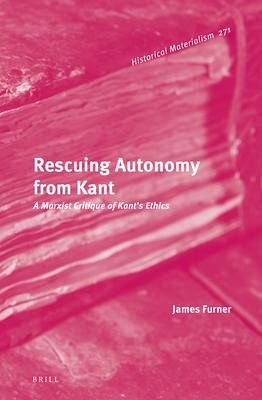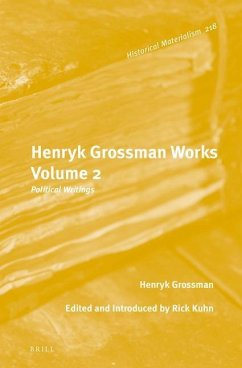
Rescuing Autonomy from Kant
A Marxist Critique of Kant's Ethics
Versandkostenfrei!
Versandfertig in über 4 Wochen
160,99 €
inkl. MwSt.
Weitere Ausgaben:

PAYBACK Punkte
80 °P sammeln!
In Rescuing Autonomy from Kant, James Furner argues that Marxism's relation to Kant's ethics is not one of irrelevance, complementarity or incompatibility, but critique: the value of autonomy can be grounded by appeal to an antinomy in capitalism's basic structure.












